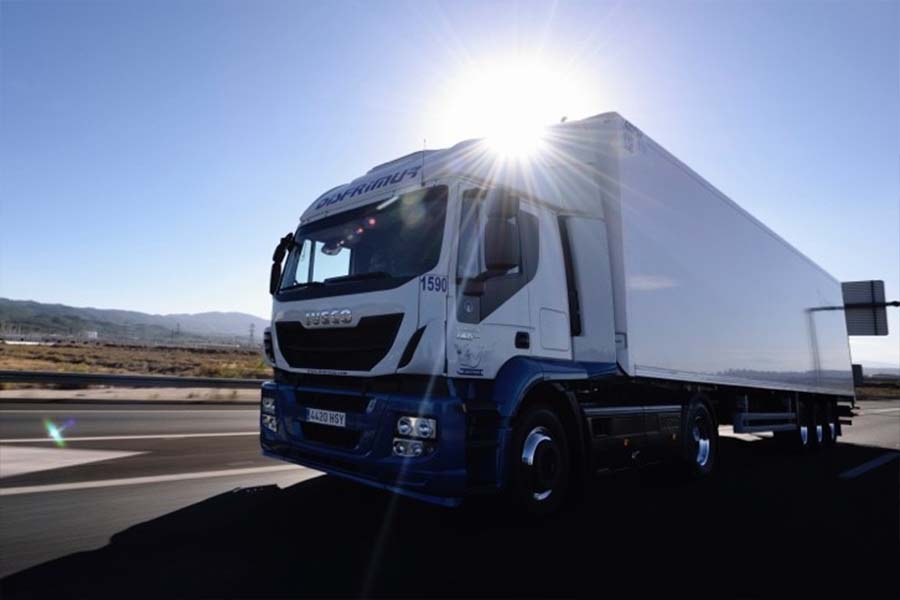Iberdrola | bp pulse to launch the first Megawatt Charging System (MCS) charger for heavy-duty vehicles in Southern Europe
-
With a power of more than 1,000 kW, it will be fully operational in July and will be able to charge up to 80% of a truck's battery in just 30 minutes
-
The innovative MCS technology is essential for electrifying long-distance heavy-duty transport, as it extends the range by 300 to 400 kilometres during mandatory rest periods
-
The announcement is part of the agreement between Iberdrola | bp pulse and Disfrimur for the provision of state-of-the-art charging infrastructure at the carrier's facilities starting with the Mediterranean corridor
-
The charger is manufactured by the Spanish company Power Electronics, and will be located at Disfrimur's facilities in Sangonera la Seca, Murcia.

Iberdrola | bp pulse will commission the first MCS (Megawatt Charging System) charger for heavy electric vehicles in southern Europe. It will be manufactured by the Spanish company Power Electronics, and will be located in Murcia, in the logistics base of Disfrimur – the company dedicated to the transport and logistics of goods. The charger will have a power of more than 1,000 kW.
This collaboration agreement, a pioneer in Southern Europe, aims to reinforce the goal of both companies to become part of the solution to meet the challenges of electrifying heavy-duty vehicles and the EU decarbonisation targets.
The MCS chargers are specifically designed for heavy electric vehicles, such as trucks and buses, as they allow ultra-fast charging of their batteries from 10% to 80% in just 30 minutes. The batteries of these new-generation vehicles will be between 600 and 1,000 kWh, which is equivalent to around two and three times the energy consumed in a month by a Spanish household. Their high power also makes it possible to extend the range between 300 and 400 kilometres during the rest periods required by the European Regulation, which stipulates a 45-minute stop every four and a half hours of driving.
Quoting Pablo Pirles, CEO of Iberdrola | bp pulse: "The electrification of heavy transport is a major challenge subject to large investments, greater technological innovation and with a penetration of vehicles that is still low. This milestone is the first step towards the electrification of the Mediterranean road freight corridor, allowing long distance transport, which will contribute to reducing emissions in the transport sector". Pablo added that "heavy transport is certainly one of the most complex sectors to include in the path towards the energy transition. And, therefore, we are very proud to be pioneers on this path together with local partners committed to innovation and decarbonisation such as Disfrimur and Power Electronics".
This infrastructure development is essential to support the widespread transition to electric truck fleets (eHGVs) and to reduce greenhouse gas emissions in the road transport sector.
The road transport sector was responsible for 28.1% of Spain's total national greenhouse gas (GHG) emissions in 2022. Trucks, in turn, account for 25% of the transport sector's total emissions.
Up to €50 million grant for high-power network deployment
The company has recently received a major boost after being awarded up to €50.1 million euros in grants under the European Commission's CEF Transport AFIF 2021-2027 programme.
The subsidised project – the largest in its scope in this call – aims to accelerate the deployment of electric charging infrastructure. To this end, it includes the deployment of 1,220 high-power points between 2023 and 2026 on the TEN-T transmission network in Spain and Portugal: 206 fast points (over 150 kW) and 1,014 ultra-fast points (over 350 kW).
Iberdrola | bp pulse plans to deploy 5,000 fast and ultra-fast public charging points by 2025 and 11,700 by 2030, investing €1 billion. The company's ambition is to deploy the most extensive high-power public charging network on the Iberian Peninsula, covering all transport, both light- and heavy-duty vehicles
